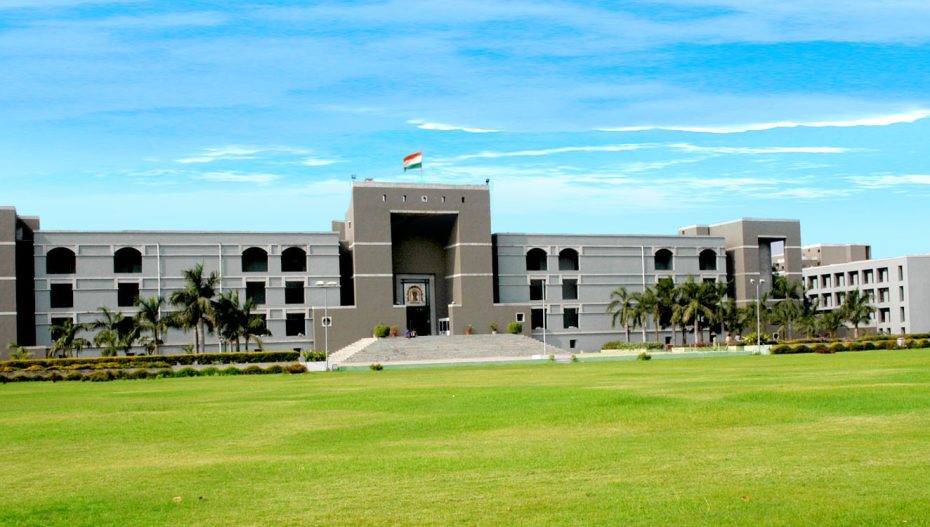While a series of petitions seeking to criminalise marital rape are pending before the Supreme Court, the Gujarat High Court, in an important observation, has said that rape is rape, even if the accused is a husband charged with the offence against his own wife.
Disagreeing with the marital rape exception as provided under Section 375 of the IPC (Exception 2), which exempts a husband from punishment if he commits sexual acts against the consent of his wife (being 18 or older), the court noted that marital rape is illegal in 50 US states, three Australian states, and many other countries.
A bench of Justice Divyesh A Joshi noted that the United Kingdom, which the Indian Penal Code primarily draws from, has also removed the exception under a judgment rendered by the House of Lords in R v. R in 1991.
Therefore, the Court added that the code that the rulers made then abolished the exception given to husbands.
For context, as per Section 375 of the Indian Penal Code (IPC), rape includes all forms of sexual assault involving non-consensual intercourse with a woman. However, under Exception 2 to Section 375, sexual intercourse between a husband and a wife aged over 15 (read as 18 years in the case of Independent Thought vs UOI) does not constitute ‘rape’ and thus prevents such acts from prosecution.
The Court made these observations while denying bail to a woman (mother-in-law of the complainant), accused of aiding, instigating, and abetting the alleged commission of brutal sexual acts against the complainant in connivance with her husband (complainant’s father-in-law) and son (complainant’s husband).
The facts in brief
According to the charge sheet filed, the accused (mother-in-law) and her husband (father-in-law) compelled their son to take nude videos and photographs of the complainant and share them in a WhatsApp group.
The complaint also accused the father-in-law of sexually assaulting her. She alleged that her father-in-law installed CCTV in the bedroom to watch her son get intimate with her.
The accused-applicant’s (mother-in-law) was allegedly aware that his son would upload such videos on a porn website.
When she took up the matter of her husband’s despicable actions with her in-laws, they asked her to remain silent.
The Court observed that the applicant-accused, being a woman, had not done anything to save the integrity of another woman. She was complicit in not preventing her husband and son from engaging in such actions.
In its order, the Court also emphasised that fundamental rights under Articles 14, 15, 19 and 21, which include the right to live with dignity, personal liberty, bodily integrity, sexual autonomy, right to reproductive choices, right to privacy, right to freedom of speech and expression apply to both, men and women.
The High Court said the silence on gender violence needs to be broken and that women have a role in combating violence against women.
The Court also highlighted the scale of sexual violence, ranging from the most severe, such as rape with or without violence, to various other offences under different laws, which include behaviours like stalking, eve-teasing, verbal and physical assault, and harassment.
The Court stressed that social attitudes typically characterise these crimes as ‘minor’ offences. It added that such crimes are not only normalised, but are also romanticised in mediums like cinema.
These attitudes that indulgently view the crime through prisms such as “boys will be boys” and condone them have a lasting and pernicious effect on the survivors, the Court added.
Against the backdrop of these observations, the Court noted that the offences punishable under Sections 498A, 376, 354 and 506 of the IPC are all clearly spelt out in the complaint against the accused-applicant in the statements recorded during the investigation and the contents of the summary in the charge sheet.
The Court further added that various disputed questions of fact have to be thrashed out only in a full-fledged trial and, hence, if the applicant has anything in her defense on the allegations, it is for her to put up such defense before the Sessions Court and come out clean in the trial.
The Court did not deem it fit to grant her bail.
In similar news, while acquitting a husband of the charges under Section 377 IPC for allegedly committing an “unnatural offence” against his wife, the Allahabad High Court recently observed that protection of a person from marital rape continues in cases where his wife is 18 and above.
In May last year, a Division Bench of the Delhi High Court, comprising Justices Rajiv Shakdher and C Hari Shankar, delivered a split verdict on a batch of petitions challenging the exception provided to marital rape in the IPC. Justice Shakdher held that the exception was unconstitutional, while Justice Hari Shankar upheld its validity, saying the exception was “based on an intelligible differentia”. Since substantial questions of law were involved, the judges granted leave of appeal to the Supreme Court.
Now, a batch of petitions is listed before the Supreme Court, including an appeal against a judgment by the Karnataka High Court that allowed the prosecution of a man for raping his wife.
Also Read: Pat Cummins Joins Orange Army in Record Deal, Hopes to Break SRH’s Title Jinx












